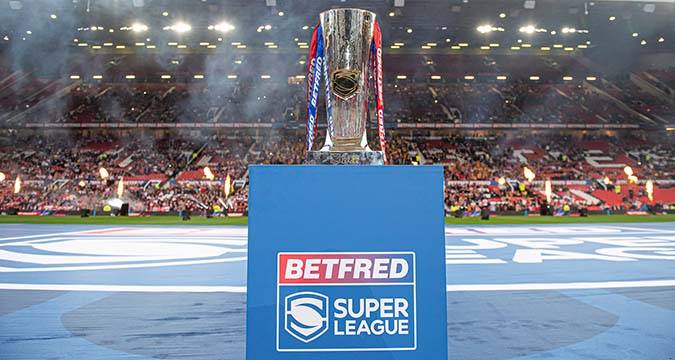
Three months ago the RFL announced that it would enter into a twelve-year partnership with the IMG Group to re-imagine Rugby League with a view to increasing the game’s profile, boosting its popularity and enhancing its income potential from broadcasting, sponsorship and other commercial ventures.
As crowds and TV audiences for the game seem to be stuck at their current levels, with income from Sky Sports having been reduced and little sign of major sponsors coming on board, I have to admire IMG’s belief in the game and I wish them well in their endeavours.
But if they are going to broaden our sport’s appeal, then they are clearly going to have to make some significant decisions, while explaining to the game’s stakeholders precisely how those decisions will deliver the rewards of bigger audiences, enhanced sponsorships and more demand from broadcasters.
IMG are not revealing what issues they are considering, but I would guess that their remit allows them to make proposals for any aspect of the way Rugby League is organised, from its governance to what happens on the field.
Here are ten issues that in my view they should consider very carefully.
1. GOVERNANCE
The clubs effectively have a veto on proposals for change, which means that Super League, and Rugby League more generally, has no real corporate identity. An analogy would be that each individual branch of Tesco could put a stop to any proposals that the company’s head office would make to improve the way the company operates. Super League needs to be able to make decisions about the competition in the same way that the NFL does, for example. It’s the most fundamental point of all.
2. BRANDING
Do we want to retain the branding of our major competition as Super League? Rugby League has no ownership of the Super League brand in that it can’t prevent other sports and competitions adopting it. Is that lack of exclusivity important and could the game create a better brand than the one it has? I suspect we will stick with the Super League brand but I hope not before we have a debate about its effectiveness.
3. COMPETITION STRUCTURE
Do we want to retain the present three tiers of competition or create something different? And are we happy to have 37 professional or semi-professional clubs of widely varying standards?
4. NUMBER OF ELITE CLUBS
We currently have twelve ‘elite’ clubs, with varying degrees of eliteness, in our top competition. I’m convinced that that number is too low and that it’s hard to promote much greater interest in a competition with so few participants. The NRL has 16 clubs playing in their elite competition, to be increased to 17 next year, and in my view widening the geographical footprint of Super League is essential if we are to widen interest in it.
5. PROMOTION AND RELEGATION
In my view, promotion and relegation are ruinous for the game, putting an enormous strain on clubs’ finances when they either gain promotion or suffer relegation. We saw how difficult it was for Toulouse this year, as well as Workington, although of course Barrow have bucked the trend. And the existence of promotion has totally skewed the Championship competition this year as Leigh and Featherstone have spent a fortune trying to secure a place in Super League.
6. LENGTH OF THE SEASON
Who could deny that the season is too long? When we look at the way that teams at all levels of the game are struggling with injuries and the way that fans clearly get tired of the ‘loop’ fixtures, we surely must grasp the nettle and create a shorter season that packs greater urgency into the fixtures. Too often we give spectators the opportunity to feel bored by what we have to offer.
7. BROADCASTING POLICY
This is a crucial matter because the current broadcasting deal only runs until the end of 2023. So do we want to continue with Sky, selling virtually the whole of Super League to that broadcaster, allowing it to ‘warehouse’ games it doesn’t broadcast. Fortunately that policy was not continued this year when Channel 4 was given ten games, which they have covered admirably. Should we keep going down that road and what would be financial implications be?
8. OVERSEAS POLICY
I’ve long thought that we have too many overseas players, who generally cost a lot of money that could be used productively elsewhere. When clubs sign overseas players, they often feel obliged to play them at the expense of British players, which limits the number of players, for example, who are available for international squads.
9. DISTRIBUTION OF FUNDS
Clubs are always desperate for money and they will resist any proposal to share out the proceeds from any broadcasting deal beyond themselves, which is perfectly understandable. But the game must work out how it can direct funds to those areas that will give it a better long-term return.
10. WIDER INTEREST
This is the crucial thing. How do we make Rugby League players and clubs better known throughout the United Kingdom and France? Should we tinker with the rules of the game, or the scoring system or are there some more fundamental steps that can be taken to achieve this objective? For example, do we want to internationalise the competition, a process that was rudely interrupted by the pandemic, or should we stick to where the game is already played, forgetting about places like Toronto, perhaps even France or North America more generally?
I’m sure that IMG will eventually form a view on these and many other issues connected with Rugby League.
The above content is also available in the regular weekly edition of League Express, on newsstands every Monday in the UK and as a digital download. Click here for more details.
